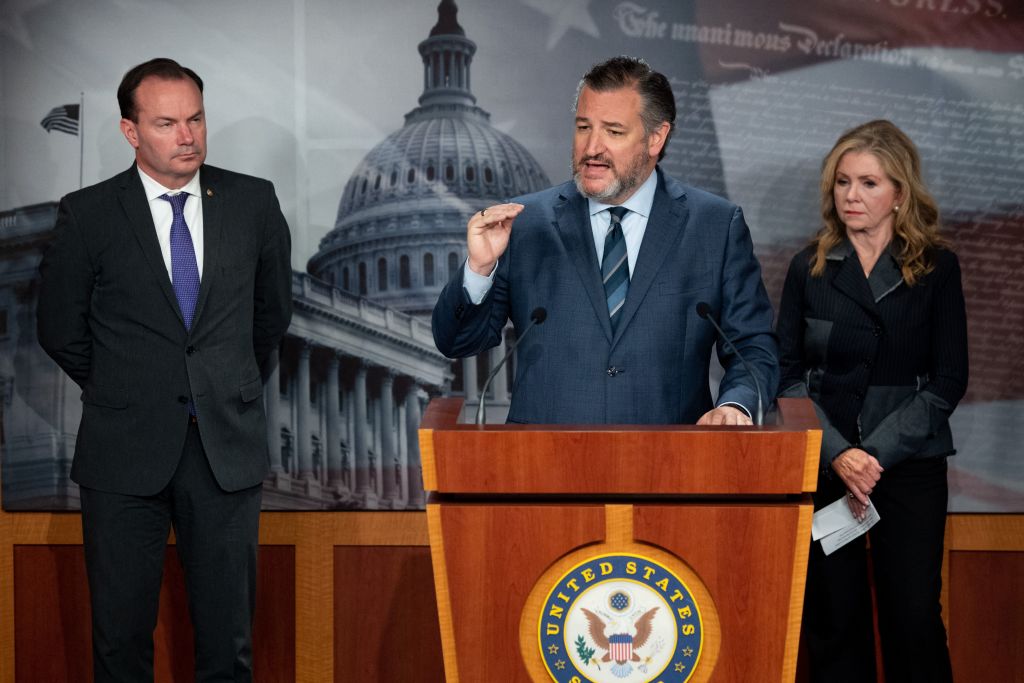Catholics can—and should—support both.
What the Hearings Missed

Confusion about the scope of Roe v. Wade besets even Republican senators.
Since the days of Robert Bork and Clarence Thomas, when the hearings for confirmation to the Supreme Court first turned poisonous, a band of professors and kibitzers have pursued a romantic conceit of slipping questions to Republican members of the Senate Judiciary Committee. Those questions were meant to draw out the Democratic nominees, in probing the root premises at work on the most vexing issues of the day. The same crew have also sought to arm Republican nominees with responses that would throw their Democratic questioners off balance. But these exertions of genius have produced, over the years, a record of comic futility.
During the confirmation hearings for Sonia Sotomayor, some of us tried to plant a simple but potentially momentous question. The case of Roe v. Wade had been at the center of these hearings for so long, and so we thought it might be illuminating to ask Judge Sotomayor to explain just what the holding in that case was. A friend of mine, at one of the leading law schools in the country, surveyed 25 of her colleagues on that question, and found that only five of them could give an accurate answer. Along with most others in the reading public they were under the illusion that Roe created a right to abortion only during the first trimester of pregnancy, whereas the ruling in fact permits abortion in the second and even third trimesters, albeit with limitations. (Years ago, at dinner, I managed to jolt beloved and venerable Eugene Rostow, the Sterling Professor of Law at Yale, who was under the same illusion; for after all, he too got his news from the New York Times.) Even the urbane reading public seemed little aware that Roe, with its companion case of Doe v. Bolton, had established nothing short of a right to abortion that extended through the full length of the pregnancy—and even perhaps when the child is born alive, surviving the abortion. On the latter point former President Obama resisted for years passing bills to protect the child born alive, whether in Illinois or in Congress, plainly, for him, at odds with the cardinal right proclaimed in Roe v Wade.
It wasn’t until the third round of questions in the Judiciary Committee that the question was raised by the only non-lawyer on the Republican side, Tom Coburn of Oklahoma. He put the question, and Judge Sotomayor answered, in accord with the popular fiction, that Roe established a right to abortion only under “certain circumstances.” Really? She stepped into the trap, and she now opened the possibility for putting on the record, with all the media tuned in, the chillingly accurate account of what Roe had introduced in our lives. But instead of following through, Coburn lost his place. His question had elicited a response, and so he would return now to “gun rights”!
During the recent hearings over Judge Jackson, Senator Marsha Blackburn raised a question that would draw attention when she asked if the judge could tell her what a “woman” is. This question provided the right opening. Judge Jackson elicited some derision and chortling as she stepped around it by saying that she was not a “biologist.” And there the question died, though the judge had essentially put on the table the key to the whole problem. Did Jackson believe, in fact, that the answer to the question of womanhood would be found in biology, not in psychology or psychotherapy: that sex is inescapably marked by the way we are constituted in our reproductive organs, in differences running through our hormones and cells, and not on whether any of us “felt” to be men or women, apart from that body we found ourselves inhabiting at birth.
But then, of course, is this matter really reserved to the expertise of biologists? Blackburn could have invited Judge Jackson simply to cast an eye about the room. Even without a degree in biology, could she not make some plausible guess about the people she would identify as “women”? What of Senator Blackburn herself? Did the Judge feel confident in “tagging” her as a woman? And yet, how could she presume to say that without asking Blackburn his/herself what she truly thought her/his own “gender” to be?
But Blackburn planted another important question. She picked up on the point that many people have argued—including, most notably, former-president Obama —that the right to an abortion entails the right to an “effective abortion” or the right to leave the survivor of abortion to die, unattended. With time, that position has come to be held by now by virtually all Democrats in Congress, for they have had remarkable cohesion in resisting the latest bill to attach serious penalties to the killing of these survivors.
Judge Jackson stepped into the trap. She demurred from answering for the reasons we had anticipated: because the question could come before her in the Supreme Court. But there itself was the answer that told all, for anyone who was paying attention. Forty-nine years after Roe v. Wade, a judge well tutored in the law could not say with any firmness that the right to abortion did not in fact entail the right to kill a child born alive. But if that’s the case, then the very meaning of Roe could hardly be as “settled,” beyond doubt, as its defenders over the years have claimed it to be.
Yet, once again, there was no follow up. Senator Blackburn was evidently unclear as to where her own question led. And for that matter, she received no help. Senator Ben Sasse had introduced the new bill to attach penalties to killing survivors of abortion, but apparently he wasn’t paying attention, or no one thought to alert him.
On one level, it didn’t really matter, because the exchange was not likely to derail the confirmation of Judge Jackson. But the revelation of this news may have helped to shape the public understanding as the Supreme Court comes to the edge this year of scaling back or overturning Roe. Still, someone might have conveyed the news to Senators Manchin or Romney and their supporters back home that they were about to vote to confirm to the Court a justice who is not at all clear that the right to kill the unwanted child in the womb stops even at birth.
Mitch McConnell, the Republican leader in the Senate, offered his own rationale on why he would not vote to confirm Judge Jackson. He found, as others did, a persistent inclination on her part to treat serious crimes as less than serious by imposing sentences quite noticeably short of the punishments typically measured to the seriousness of the crimes. She displayed also a kind of flippant openness to major changes in our constitutional law if a novel breakthrough could command but five votes on the Supreme Court. But McConnell took, as his leading point, her affable willingness to be a member of the Supreme Court no matter how many more justices may yet be added. She was, he said, “the Court-packers pick.”
That question does have its serious political moment now, and yet by any reckoning we could not say in principle that a Court of 11 or 13 justices would be morally worse than a Court of nine. But, in contrast, it makes the most striking difference for our law, and for us, as a people, if we make ourselves agreeable to the notion that the “right to abortion” entails the right to kill a baby who survives one. The Republicans have become the cohesive pro-life party in our politics, and it’s hard to believe that the Republican Leader would have failed to mention this telling point—if any Republican on the Judiciary Committee had thought it important enough to be noticed, and conveyed, to the chief spokesman for their party in the Senate.
The American Mind presents a range of perspectives. Views are writers’ own and do not necessarily represent those of The Claremont Institute.
The American Mind is a publication of the Claremont Institute, a non-profit 501(c)(3) organization, dedicated to restoring the principles of the American Founding to their rightful, preeminent authority in our national life. Interested in supporting our work? Gifts to the Claremont Institute are tax-deductible.
All hands on deck as we enter the counter-revolutionary moment.



